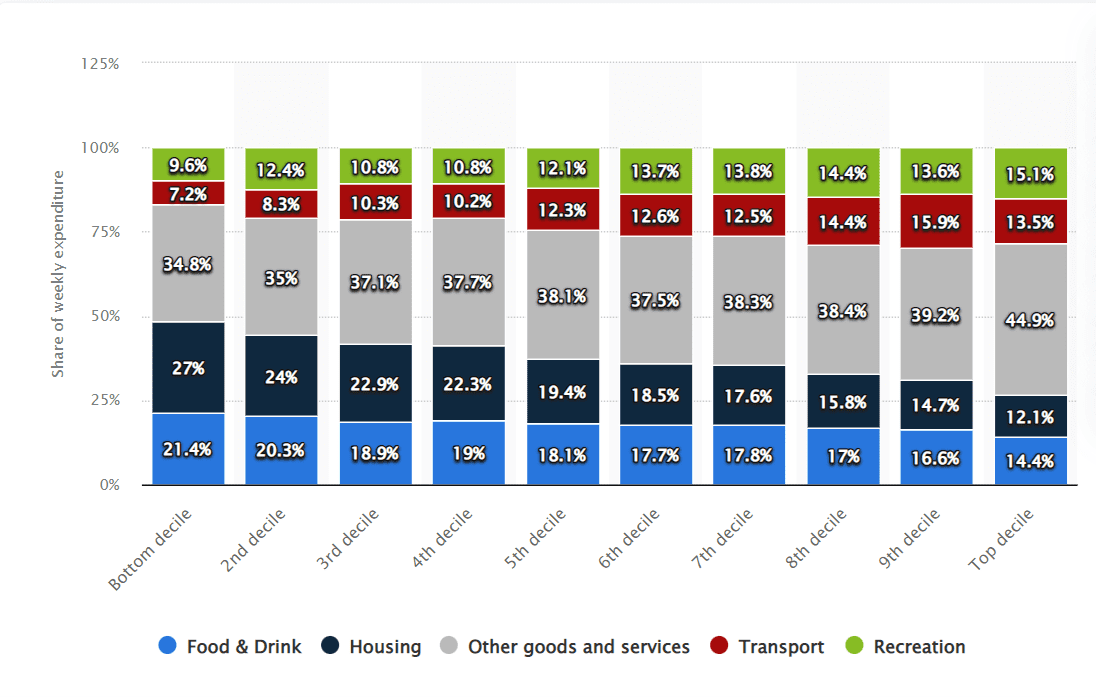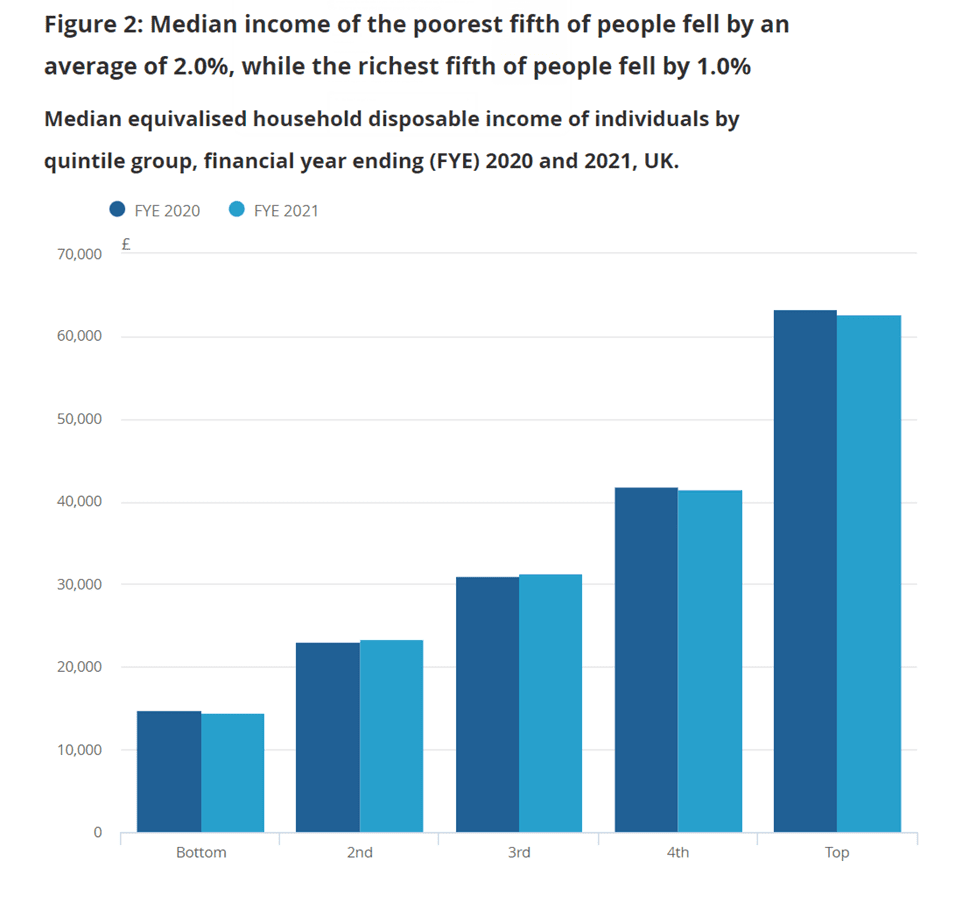As the cost of living crisis continues, new research has told poor people what they already knew: that financially, they’re screwed. However, what the data does do is shine a useful light into just how bad things are.
Cost of living crisis: dire straits
Torsten Bell is the chief executive of think tank the Resolution Foundation. The group does a lot of research into how government policy affects the poorest people. Now, Bell’s team has crunched some more numbers. He tweeted that 65% of the poorest fifth of people have no savings at all:
National savings rates cover a wide definition of savings. Let's focus on what most people think savings are: cash in the bank. The are LOTS of people with very little savings. 65% of lowest income 5th in Britain have less than 1 month's income in savings vs 56% in Germany/France pic.twitter.com/iuUU67f5Jc
— Torsten Bell (@TorstenBell) January 16, 2023
This has hardly changed since 2016-18, at a time when the poorest people who were in bad health could save even less. However, it’s no surprise that poor people can’t save any money. This is because they spend more on everyday costs than all other groups – from housing to food – and the least on “recreation”:

Soaring inflation has hit the poorest people the hardest. So their ability to save is directly linked to income, as Office for National Statistics (ONS) data has shown:

Falling into arrears
However, Bell showed another problem: that the poorest people are also often behind on their bills:
Hopefully you all knew no/low savings are a problem anyway. But if anyone needed convincing, when a cost of living crisis turns up it has meant people falling behind on bills/getting into debt pic.twitter.com/eP3ytAzXwe
— Torsten Bell (@TorstenBell) January 16, 2023
Again, it’s no surprise that people reliant on social security are in the worst position regarding paying bills. This is because successive Tory governments have repeatedly frozen benefit rates, cutting them in real terms. Similarly, polling commissioned by the BBC found that 32% of social housing tenants had fallen behind with utility bills in the past six months during the cost of living crisis. Between 2016 and 2018, the poorest fifth of people had the highest rates of “problem debt”, despite having the least money. This is likely to be the same now. Yet as Bell pointed out, the government helps the poorest people the least when it comes to savings:
Here's how we prioritise our support for savings:
– typical household in top 10% will get £800 next year
– compare that to £80/household for the poorest fifth pic.twitter.com/Hx8NbMTfT2— Torsten Bell (@TorstenBell) January 16, 2023
The end result of this is financial chaos for the poorest people.
A catastrophe
The BBC carried out a poll, but didn’t check whether people were rich or people. The poll found that:
Half those asked paid for at least some of their Christmas and holiday season spending on credit.
And:
A third of respondents to the poll who used credit to help get through Christmas and the holiday season said they were not confident about their ability to repay.
This leads to a deterioration in people’s mental and emotional wellbeing. Search engine optimisation agency BlueArray reported that surveying showed that:
when asked if they are worried about affording essentials such as food, clothing, housing, and travel over 84% are worried with 36% of these being extremely worried.
It also found that:
87% of those surveyed say financial stress is impacting their mental health with 26% of those saying it impacts them a lot.
2023 is going to be a disaster for countless people during the continuing cost of living crisis. With no savings, little meaningful government support, and energy bills set to go up again, the poorest people are running out of places to turn. So, it will be left to communities and not-for-profit groups to pick up the pieces.
Featured image via pixabay
By Steve Topple
This post was originally published on Canary.